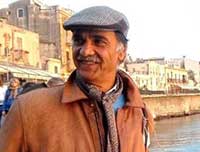Physical Address
304 North Cardinal St.
Dorchester Center, MA 02124
Physical Address
304 North Cardinal St.
Dorchester Center, MA 02124

[
]
ROME, Jul 08 (IPS) – Immigrants are essential to Europe’s economic survival. They are needed for doing the jobs that most Europeans no longer want to do. Jobs that involve manual labor in agriculture and industry; or providing home help, care for the elderly; or working un-social hours in the catering business.

I have previously argued that no one really wants immigration to stop, or for immigrants to leave. What the anti-immigrant parties want to do is to create a new subclass of low paid workers who have no rights and no political power (Europe’s Shift to the Far Right and its Impact on Immigration | Inter Press Service (ipsnews.net). Such a “new immigrant proletariat” would enhance profits of those employing such immigrant workers, as well as raise overall living standards of the general population.
Recent events in Italy appear to confirm my hypothesis that low-paid illegal work in deeply imbedded in the system.
On 17 June, in a farm south of Rome an agricultural worker was critically injured and subsequently died. Satnam Singh’s right arm was caught in an agriculture machine and was chopped off. The owner of the farm placed the truncated arm in a box; he then deposited the box, and the injured Satnam Singh, outside his house and drove off. Satnam was eventually taken to hospital, but the delay in getting him medical aid meant that it was not possible to save his life.
What came to light in the subsequent investigations is that Satnam has no stay permit, no work contract and was paid a pittance for back breaking work in debilitating heat and biting cold. The Minister of Agriculture was quick to denounce the event leading to Satnam Sigh’s death and police are prosecuting the owner of the farm. However, the minister was also pointed out Italy’s agriculture sector is viable, dynamic and law abiding, and should not be criminalized due to a single unfortunate event
However, studies and surveys, mostly done by the trade unions, put a lie to his statement. In the case of the agriculture sector, of the roughly 1 million workers, some 230,000 are estimated illegal 1. Like Satnam, they are low-paid and badly treated. There are also allegations of different forms of abuse, as well as widespread use of amphetamines and painkillers to make them work harder.
Moreover, what is also emerging from various investigations is how the system, which supposedly aims to create more legal and controlled immigration, actually works to ensure an ample supply of illegal immigrants. The system works as follow:
Under Italian Law (the Bossi-Fini Act of 2002) Italian employers can ask for foreign workers to legally enter Italy to work in specific sectors, including agriculture and the tourism sector. The implicit agreement is the once they are in Italy, the employer who sponsored their entry would provide them a work contract and wages that are in line with industry standards.
However, in many cases the sponsoring employer does not show up to pick up the workers – let alone provide a job or a contract. The arriving workers find themselves in a foreign country where they cannot speak the language, without a job and without papers. The phenomenon is particularly acute in some regions of Italy such as Campagna (around Naples) where only 3% of workers who enter Italy legally actually sign a contract with the employer who sponsored their entry into the country.
It is here that the so called “contractors” step in. These contractors pick up the newly arrived workers providing them with immediate help and assistance. They then act as intermediaries to arrange jobs for them at wages that are a fraction of what Italians doing the same job would be paid. Moreover, these unscrupulous contractors skim off much of what the workers earn for renting them a house and for providing transport to and from work.
And all this is happening in front of everyone’s eyes, including those of various local and national authorities. For example, authorities know which companies sponsored foreign workers to enter Italy. They also know how many work contracts these companies signed with these immigrant workers. Recent reports show that in the Naples area 22,000 sponsored workers entered the country but not one of the signed a contract.
Similarly, the owner of the farm where Satnam Singh died had declared to the local authorities that he had only one tractor and no workers – facts that were patently untrue but no one ever bothered to check.
These and other facts are often well covered in reports done by the trade unions or by investigative journalists particularly after an accident or an untoward event happens. Moreover, there is nothing really clandestine about what is happening. One has only to drive around the agriculturally rich areas around Rome or the central or northern parts of Italy to see an army of workers from South Asia attending to livestock or toiling in the fields that supply the city with fresh fruit and vegetable. In more southern parts of Italy, it is young men from Africa that are picking oranges and tomatoes.
Similarly in cities such as Rome and Milan there are armies of illegals who work as “riders” delivering food to people’s homes; working as cooks, dishwasher and waiters in restaurants and bars; or working as cleaners or caregivers in people’s homes.
The system seems to suit everyone and if every so often a Satnam Singh dies – well so be it.
1https://www.fondazionerizzotto.it/wp-content/uploads/2023/01/Sintesi-VI-Rapporto_301122.pdf
Daud Khan is a retired UN staff based in Rome. He has degrees in economics from LSE and Oxford, where he was a Rhodes Scholar; and a degree in Environmental Management from Imperial College London.
IPS UN Bureau
Follow @IPSNewsUNBureau
Follow IPS News UN Bureau on Instagram
© Inter Press Service (2024) — All Rights ReservedOriginal source: Inter Press Service
[